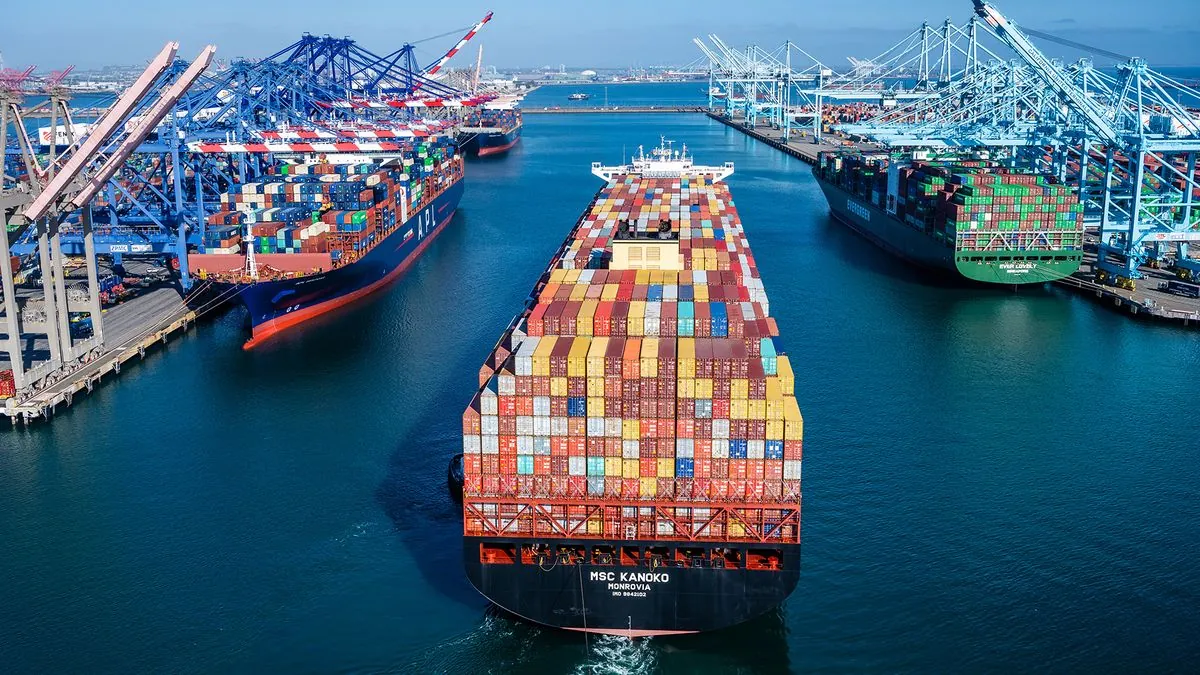The Port of Los Angeles, North America's busiest container port, has resumed cargo operations following a disruptive fire incident. The event, which occurred on September 26, 2024, was caused by an overturned tractor trailer carrying lithium batteries near Ocean & Navy Way on Terminal Island.
The incident led to temporary closures of several terminals, including APM Terminals, Fenix Marine, Everport, and Yusen Terminals. These facilities are part of the port's extensive 7,500-acre complex, which spans 43 miles of waterfront and handles over $300 billion worth of cargo annually.
Port authorities, in collaboration with multiple agencies, successfully relocated the trailer to a secure location where it could safely burn out. This strategic move allowed for the reopening of crucial roadways, including the Vincent Thomas Bridge and Seaside Avenue, facilitating the resumption of cargo operations.
The Port of Los Angeles announced via social media platform X that terminals affected by the accident were expected to safely resume full operations on September 28, 2024. This swift recovery is crucial for maintaining the port's pivotal role in the U.S. economy, as it facilitates 20% of all incoming cargo to the country.
This incident highlights the importance of the port's dedicated police force, the Los Angeles Port Police, and its innovative security measures. The port's ability to quickly address and resolve such challenges is essential, given its significant impact on Southern California's economy, where it employs over 500,000 people.
The Port of Los Angeles, founded in 1907, has been instrumental in Los Angeles' growth and is part of the larger San Pedro Bay Port Complex. It's not only a vital economic hub but also a department of the City of Los Angeles, governed by the Los Angeles Board of Harbor Commissioners.
In recent years, the port has been at the forefront of implementing clean air strategies and environmental initiatives to reduce air pollution. It has also invested in automation to increase efficiency and has a Water Resources Action Plan to improve water and sediment quality.
Despite occasional disruptions, the port continues to play a crucial role in international trade. It handles diverse cargo types, including containers, automobiles, and bulk products, and has sister port agreements with several international ports. The port's resilience and adaptability, as demonstrated in this recent incident, underscore its importance in the global supply chain.
